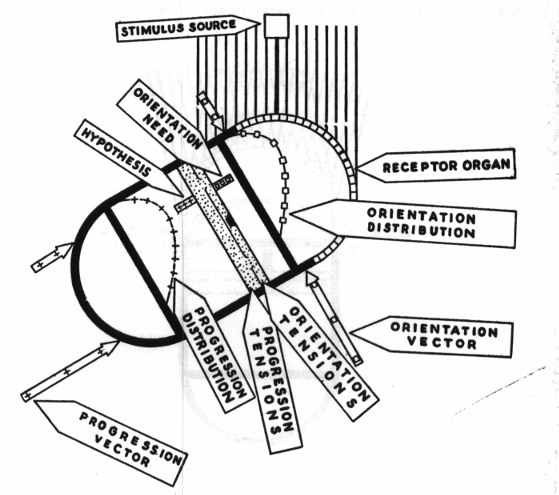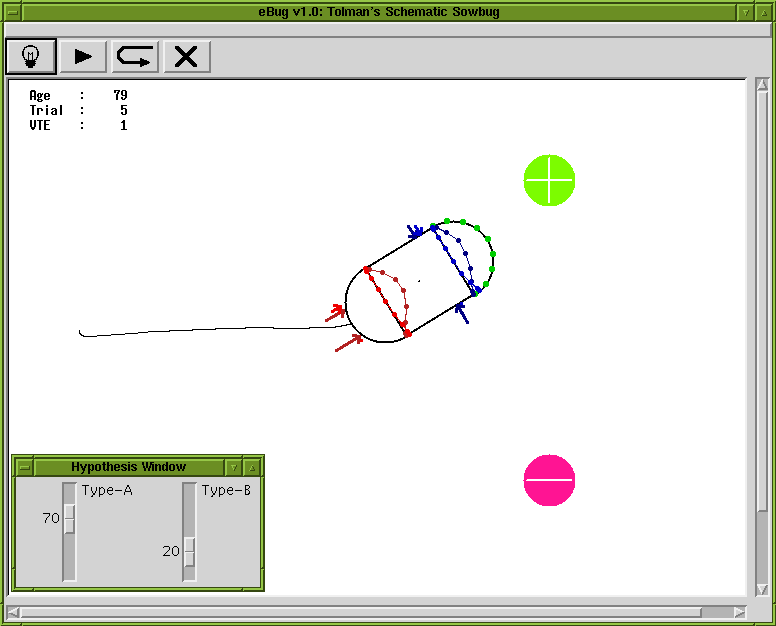In 1939, Edward C. Tolman, a psychologist, introduced the concept of the
schematic sowbug in his paper "Prediction of Vicarious Trial and Error by Means of the Schematic
Sowbug" (Psychological Review). The schematic sowbug is based on Tolman's purposive
behaviorism, and it is believed to be the first prototype in history that actually implemented a
behavior-based architecture suitable for robotics. The schematic sowbug navigates the
environment based on two types of vectors, orientation and progression, that are computed
from the values of sensors perceiving stimuli. (For more details on Tolman's schematic sowbug,
read this
paper.)
eBug is a program that can emulate Tolman's schematic sowbug both in simulation
and on a real robot (ActivMedia Pioneer AT, etc.), and its source code is available from this site.

